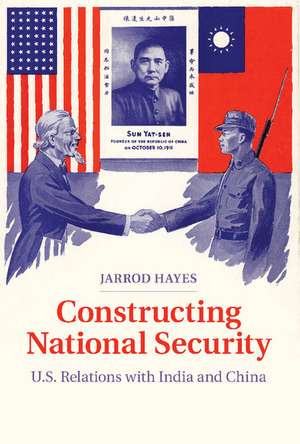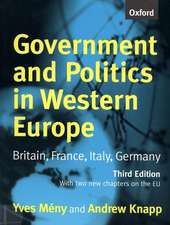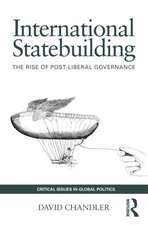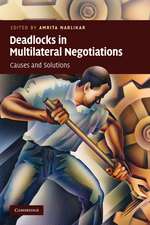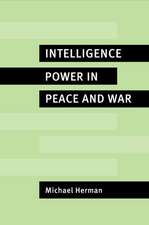Constructing National Security: U.S. Relations with India and China
Autor Jarrod Hayesen Limba Engleză Paperback – 29 apr 2015
| Toate formatele și edițiile | Preț | Express |
|---|---|---|
| Paperback (1) | 281.12 lei 43-57 zile | |
| Cambridge University Press – 29 apr 2015 | 281.12 lei 43-57 zile | |
| Hardback (1) | 552.05 lei 43-57 zile | |
| Cambridge University Press – 6 oct 2013 | 552.05 lei 43-57 zile |
Preț: 281.12 lei
Nou
53.79€ • 56.31$ • 44.51£
Carte tipărită la comandă
Livrare economică 07-21 aprilie
Specificații
ISBN-10: 1107645166
Pagini: 224
Dimensiuni: 152 x 229 x 12 mm
Greutate: 0.3 kg
Editura: Cambridge University Press
Colecția Cambridge University Press
Locul publicării:New York, United States
Cuprins
Preface; Introduction: constructing democratic security; 1. Securization, identity, and security outcomes; Part I. Democracy, Security, and the Relationship between India and the United States: 2. Near miss: the Bangladesh war, India, and the United States in 1971; 3. Nuclear games: the United States, India, and the de-securitization of nuclear weapons; Part II. The Non-Democratic 'Other': The Sino-American Relationship: 4. Near miss: China and the United States in the 1995–6 Taiwan Strait crisis; 5. The 2001 Hainan Island EP-3 incident; Conclusion: the social construction of security.
Descriere
Jarrod Hayes explores why democracies tend not to use military force against each other. He argues that democratic identity - the shared understanding within democracies of who 'we' are and what 'we' expect from each other - makes it difficult for political leaders to construct external democracies as threats. At the same time, he finds that democratic identity enables political actors to construct external non-democracies as threats. To explore his argument, he looks at US relations with two rising powers: India and China. Through his argument and case studies, Professor Hayes addresses not just the democratic peace but also the larger processes of threat construction in international security, the role of domestic institutions in international relations, and the possibility for conflict between the United States and the world's two most populous countries.
